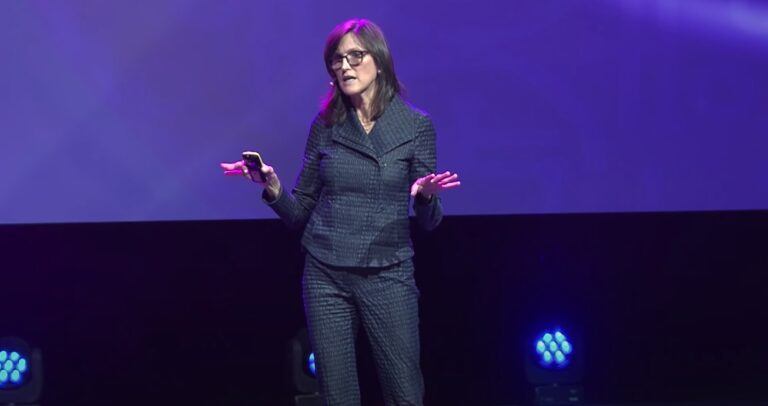Catherine Wood, Founder, CIO, and CEO at ARK Investment Management, LLC (aka “ARK” or “ARK Invest”), talked about Bitcoin while speaking during Cboe’s “Exchanging Perspectives” webinar (held on March 25).
Wood believes that Bitcoin’s market cap, currently about one trillion dollars, will in the future be a lot higher:
“If we add all of the potential demand relative to the limited supply, we come up with incredible numbers over the long term. We have just begun. One trillion dollars is nothing compared to where this ultimately will be.“
She also mentioned increasing use of Bitcoin as a treasury reserve asset by publicly held companies such as Square and Tesla:
“I think the most surprising development recently, and we didn’t expect it when we wrote our institutional report, is that companies are now diversifying their cash with Bitcoin. We’ve seen Square do this, Tesla do it… MicroStrategy is defining its business around it now.”
One of the things that makes Bitcoin a very attractive asset class for Wood is its low correlation to other asset classes (even though it is worth keeping in mind that during times of financial stress, such as during March 2020, all correlations tend to go to one):
“The correlation of returns to other asset classes is extremely low. In fact, according to our analysis, the highest correlation is to real estate, 0.34. And so, it’s what every asset allocator seeks, you know, non-correlated assets. We do believe this is the first new asset class, truly new asset class, since the 1,600s. Since equities.“
Wood also talked about how much of their portfolios institutional investors should allocate to Bitcoin:
“We’ve done a study, it’s on our website ARK-invest, about institutional participation in this thing. I think we did a million Monte Carlo simulations… If institutions use that kind of analysis where they maybe want to minimize the volatility or, on the other extreme, maximize the Sharpe ratio, they probably should put something between 2.5 and 6.5% of Bitcoin in their portfolios.“
The views and opinions expressed by the author are for informational purposes only and do not constitute financial, investment, or other advice.
Source: Read Full Article
